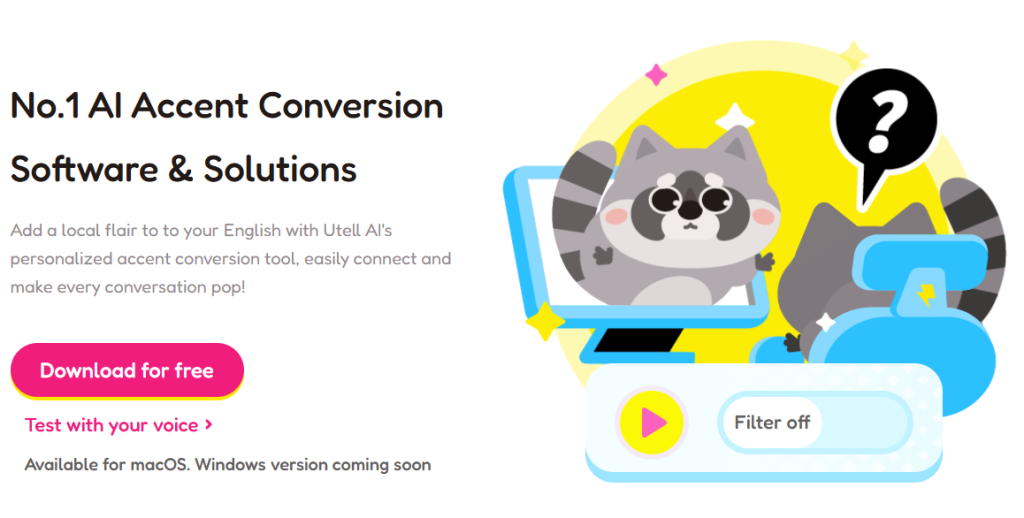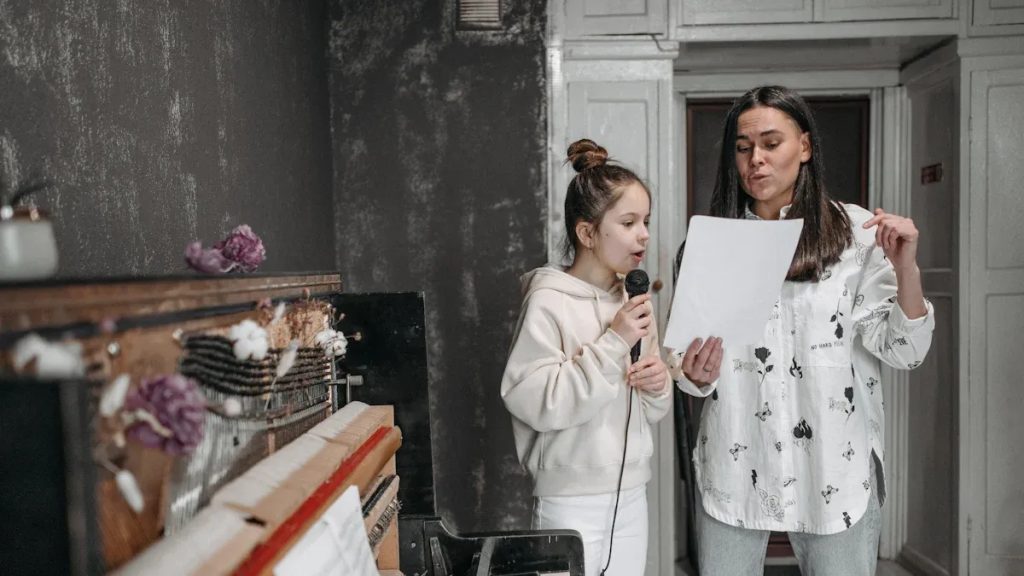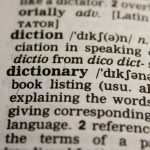So, what does a dialect coach do for actors? You get help shaping your voice and speech for a role. A dialect coach guides you so you sound real, not fake or forced. When you ask, “what does a dialect coach do,” you find out they train you to master new sounds and rhythms. Dialect coaching makes your performance believable. It gives you the tools to stand out as an actor and connect with your audience.
- What Does a Dialect Coach Do?
- Dialect Coaching Process
- Skills for a Dialect Coach
- Accent Coaching vs. Dialect Coaching
- Value of Dialect Coaching
- FAQs
What Does a Dialect Coach Do?
Voice and Speech Patterns
When you play a new character, your voice is important. A dialect coach helps you change how you talk. You learn to sound like your character, not yourself. Sometimes, you need to use a new rhythm or pitch. You might also move your mouth in a different way. This is where dialect coaching helps a lot.
It is not just about copying sounds. A dialogue coach helps you train your mouth and face muscles. You may need to learn new ways to move your tongue and lips. It can feel weird at first, but it gets easier with practice. Many actors find some sounds hard, like the Scottish R or the /v/ and /b/ sounds for nonnative speakers.
Tip: Practice often and listen to your dialogue coach. This helps you avoid sounding stiff or fake. You want your accent to feel natural, not forced.
A dialogue coach helps you not make common mistakes. Some actors try to make their voice or face too big. This can make the accent sound silly or fake. Instead, you learn to mix the accent with your acting. This keeps your performance real and honest.
Character-Specific Dialects
Every character has their own story. Sometimes, this means using a special dialect or accent. Maybe you need to sound like you are from Texas, London, or another country. A dialogue coach helps you learn these accents. You work on the sounds, rhythm, and melody that make each dialect special.
You might have trouble changing your muscle memory. Some accents need fast tongue moves or new sounds. It takes time and patience, but your coach helps you keep going. They also help you avoid using stereotypes. This makes your character feel real.
Here are some ways a dialogue coach works with you and the team:
- They talk to directors early to learn what is needed and start coaching before filming.
- They go to rehearsals, meetings, and read-throughs to stay involved.
- On set, they sit with script supervisors and directors and use headsets to give feedback.
- Script supervisors write notes about your speech and how clear you sound.
- Between takes, a dialogue coach helps you make quick changes.
- In theater, they work with stage managers to plan coaching and give notes during shows.
- Other departments sometimes ask for advice to make sure the accent fits.
You may worry about keeping your accent the same under pressure. A dialogue coach uses games, roleplays, and recordings to help you practice. This makes learning fun and less stressful. You also get feedback from the group and partners to help you stay on track.
Some actors think dialect coaching means losing their own voice. But you are really adding new skills. You learn to sound real without losing your own style. The most asked-for accents in film and theater are General American, British (like Cockney), and regional American dialects. A dialogue coach helps you learn these, so you can get more roles and do better in auditions.
Note: Dialect coaching is more than just learning sounds. It helps you connect the accent to your character’s feelings and story. This makes your acting feel real, not fake.
A dialogue coach helps you not sound like a cartoon. You do not just copy sounds or follow strict rules. You learn to mix the accent with your acting. This helps your character feel real on stage or screen. When you work with a dialogue coach, you get better and more confident. Your acting becomes believable and people remember your performance.
Dialect Coaching Process
Script Analysis
You start with the script. A dialect coach reads it with you and looks for clues about your character’s background. You both find words or phrases that might sound tricky in a new accent. Sometimes, you break down the script line by line. This helps you spot patterns and special sounds. You also talk about your character’s story and emotions. This step makes sure your accent fits the role and feels real.
Tip: Ask questions about your character’s past. This can help you understand why they speak a certain way.
Coaching Sessions
Next, you jump into coaching sessions. These meetings move fast because you often have little time before filming starts. In private coaching with a professional dialect coach, you get one-on-one attention. Your coach shows you how to shape your mouth and use your voice for the new accent. You listen, repeat, and practice. Sometimes, you use recordings or watch videos. If you work online, your coach might use Zoom or other platforms. They keep groups small, so everyone gets a chance to speak and get feedback. You practice in short bursts, which helps you remember what you learn.
- Coaches use demonstrations and discussions.
- You practice in the same way you will perform.
- Sessions are flexible and fit your needs.
Feedback and Practice
Feedback is a big part of getting better. Your coach gives you advice right after you practice, so you remember what to fix. Here’s what good feedback looks like:
- Timely: You get it soon after you finish.
- Specific: It points out what you did well and what needs work.
- Constructive: It feels positive and helps you improve.
- Interactive: You can ask questions and talk about your progress.
Sometimes, you record your sessions and listen later. If your coach is not around, you can ask native speakers for help. This keeps your accent honest and avoids stereotypes. You want to sound like a real person, not just copy sounds. Coaches care more about your acting feeling true than about perfect accent drills. If your emotions come through, small accent slips are okay.
Note: Practice often and stay open to feedback. This builds your confidence and helps you sound natural on stage or screen.
Skills for a Dialect Coach
Linguistic Knowledge
You need strong linguistic knowledge to become a great dialect coach. This means you understand how speech sounds work. You know how to listen for small changes in how people talk. You can spot the difference between a New York accent and a Texas drawl just by hearing a few words.
Here’s how expertise in phonetics helps you as a coach:
- You use science to break down speech sounds and teach actors the right way to say them.
- You use special tools like the International Phonetic Alphabet (IPA) to show actors exactly how to shape their mouths.
- You create fun exercises, like practicing tricky sound pairs, to help actors master new accents.
- You connect speech sounds to the character’s background and story, making performances feel real.
- You help actors hear and copy the tiny details that make each dialect unique.
You also need to know about healthy voice production. This keeps actors’ voices strong and safe during long rehearsals or shows.
Teaching Ability
You must know how to teach actors at every level. Some actors are new to accents and need more time. Others pick up new sounds quickly. You adjust your lessons to fit each person. You might use recordings, games, or even roleplay to make learning fun.
A good dialect coach listens to what each actor needs. You help actors feel confident, even if they struggle at first. You also show them how teaching accents and dialects can help them play more roles and grow as performers. You focus on both the sounds and the feelings behind the words, so actors can connect with their characters.
Tip: Always encourage actors to ask questions. This helps them learn faster and feel more comfortable with new accents.
Use of IPA
You use the International Phonetic Alphabet (IPA) as a map for sounds. IPA symbols show every sound in every language. This helps you teach actors how to pronounce words exactly right. You can write out a line from the script in IPA, so actors see and hear the difference between their own accent and the one they need.
Some coaches even use IPA in creative ways, like using tactile symbols for actors who learn differently. You help actors bridge the gap between what they hear and how they say it. This makes learning new accents clear and less confusing.
Note: IPA is a powerful tool for learning accents. It helps you and your actors stay on the same page, no matter what accent you are working on.
Accent Coaching vs. Dialect Coaching
Key Differences
You might wonder if accent coaching and dialect coaching mean the same thing. They sound similar, but they are not. Let’s break it down so you can see the difference.
- Accent coaching helps you focus on how you sound. You work on pronunciation, intonation, and the way your voice moves. You practice vowel and consonant sounds. You also learn about the musical flow of speech.
- Dialect coaching covers everything in accent coaching, but it goes further. You learn new words, grammar, and sometimes even spelling. You get to know how people from a certain place really talk, not just how they sound.
- Accent coaching is about the sound. Dialect coaching is about the whole way of speaking.
- In the past, people used the term dialogue coach for both jobs. Now, you see accent coaching used when the main goal is to change how you sound, not what you say.
- Accents deal with how you say words. Dialects include grammar and vocabulary too.
Note: A dialogue coach can help you with both accent coaching and dialect coaching, depending on what your role needs.
Here’s a quick table to help you see the difference:
| Coaching Type | Focus Areas |
|---|---|
| Accent Coaching | Pronunciation, intonation, voice placement |
| Dialect Coaching | Accent + vocabulary, grammar, expressions |
When to Use Each?
You use accent coaching when you only need to change the way you sound. Maybe your character is from a different country, but speaks the same language. Accent coaching helps you nail the right sounds and rhythm.
You use dialect coaching when your character’s way of speaking is very different from your own. This could mean learning new words, grammar, or even slang. Dialect coaching helps you sound like you grew up in that place.
Modern Technology Meets Traditional Coaching
While professional dialect coaches remain essential for actors, modern technology now offers additional support for accent modification. Utell AI, a real-time accent conversion software, provides an innovative solution for softening your English accent, similar to how actors prepare for roles.

Just as actors use various tools to perfect their character’s speech, Utell AI can help you achieve a more neutral English accent in real-time. This technology works particularly well for:
- Everyday communication when you want to sound more natural
- Professional settings where clear pronunciation is crucial
- Practice sessions between coaching appointments
- Instant feedback on your accent modification progress
The software functions like having a personal accent coach available 24/7, helping you soften your English accent with the same precision that actors use to transform their speech for different roles.
Professional Guidance Still Matters
A dialogue coach can guide you in both traditional coaching cases and help you understand when to complement your training with technological tools like Utell AI. Sometimes, you only need accent coaching for a small role. Other times, you need full dialect coaching for a lead part. If you ever feel unsure, ask your dialogue coach. They know what will make your performance real.
You might hear people call someone a dialogue coach, accent coach, or dialect coach. These jobs often overlap. Your dialogue coach will help you figure out what you need for each role – whether that’s traditional coaching methods, modern AI assistance, or a combination of both. No matter what, you get support to sound and speak like your character.
For those seeking immediate results in accent modification, Utell AI offers the same real-time precision that professional actors rely on, making accent improvement more accessible than ever before.
Value of Dialect Coaching
Authenticity in Performance
You want your character to feel real, not just sound different. That’s where dialect coaching makes a huge difference. When you work with a dialect coach, you learn more than just new sounds. You get feedback that helps you fix small mistakes in pronunciation and intonation. This support builds your confidence and helps you stay consistent from the first rehearsal to the final show.
Here’s how dialect coaching boosts authenticity:
- You learn to avoid overdoing an accent or falling into stereotypes.
- Coaches help you understand the rhythm and melody of a dialect, not just the words.
- You get tips on how to keep your accent steady, even when you feel nervous.
- Dialect coaching lets you connect the way you speak to your character’s feelings and story.
- Actors like Daniel Day-Lewis say mastering a dialect helps them unlock the heart of a character.
When you sound authentic, the audience believes in your performance. They see the character, not just an actor trying out a new voice.
Note: Critics and audiences notice when an accent feels off. A strong dialect coach helps you avoid those awkward moments and makes your performance stand out.
Supporting the Production
Dialect coaching does more than help you as an actor. It supports the whole production. Directors rely on you to deliver lines that fit the story’s setting. When everyone sounds right, the world of the play or film feels real.
- Famous coaches like Robert Easton have helped actors land roles by teaching them new accents.
- Easton worked with stars like Al Pacino and Liam Neeson, helping them sound convincing in many roles.
- Dialect coaching also helps you communicate better and feel more confident on set.
- Psychologists say that changing your voice can help you step into a character’s shoes, making your acting stronger.
When you respect the culture behind a dialect, you avoid stereotypes and show real care for the story. This respect makes your work more powerful and helps the whole team create something special.
You get a lot from working with a dialect coach. You learn to speak clearly and sound real. This helps you feel sure of yourself on stage or in movies. Casting directors notice when you have good accent skills. They often want to see these skills on your resume. Dialect coaching helps you connect with your character. It also helps you stand out when you try out for roles.
- Dialect coaching makes your speech better and helps you feel braver. It also gives you more chances to get different parts.
- Directors and audiences like it when actors sound real and respect all cultures.
Spending time on dialect coaching gives you a big advantage in acting. Your voice can become your special strength!
FAQs
How long does it take to learn a new accent?
You can pick up the basics in a few weeks with daily practice. Some accents take longer. Your progress depends on how much you practice and how different the accent is from your own.
Do I need a dialect coach for every role?
Not always! If your character speaks like you, you may not need one. When you play someone from a different place or background, a dialect coach helps you sound authentic.
Can I practice accents on my own?
Yes, you can start by listening to native speakers and repeating what you hear. A dialect coach gives you feedback and tips you might miss on your own. Practice with both for best results.
What tools do dialect coaches use?
Dialect coaches use recordings, IPA charts, and video examples. Some use apps or games to make learning fun. You might also get worksheets or practice scripts to help you improve.



